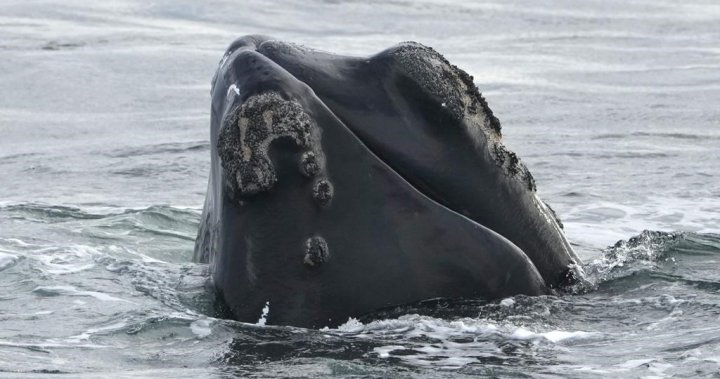The federal fisheries minister, Diane Lebouthillier, is urgently convening a meeting with the lobster industry after the government closed a fishing area off northeastern New Brunswick. The closure was deemed necessary after an endangered North Atlantic right whale was spotted in shallow waters four kilometers off the coast, east of Miscou Island. The closure, known as LFA 23C, is set to last for 15 days until May 31, after which the area will reopen if the whale is not detected again. While acknowledging the significant impact on coastal communities and fishers, Lebouthillier emphasizes the importance of protecting the endangered whale species. She also highlights the need for cooperation to prevent whale entanglements with fishing gear and maintain Canada’s reputation for sustainable seafood products.
The temporary closure of the lobster fishing area highlights the delicate balance between economic interests and environmental conservation. While the closure may affect the livelihoods of fishers and coastal communities, it is crucial to prioritize the protection of endangered species such as the North Atlantic right whale. By taking proactive measures to prevent whale entanglements and ensuring sustainable fishing practices, Canada can maintain its reputation as a responsible steward of the environment. This incident serves as a reminder of the challenges faced in managing marine resources and the importance of collaboration between government, industry, and conservation groups to find solutions that benefit both wildlife and communities.
The meeting between the federal fisheries minister and the lobster industry underscores the need for dialogue and collaboration in addressing conservation issues. By bringing together stakeholders from the fishing industry, government, and conservation organizations, it is possible to find solutions that balance economic interests with environmental protection. The closure of the fishing area serves as a wake-up call for the industry to prioritize sustainable practices and take steps to minimize their impact on marine wildlife. Through ongoing communication and cooperation, all parties can work together to find long-term solutions that benefit both the industry and the environment.
The decision to close the lobster fishing area at the height of the season reflects a commitment to protecting endangered species and promoting sustainable fishing practices. While the closure may have short-term economic implications for fishers and coastal communities, it is essential to prioritize the long-term health of marine ecosystems. By taking proactive measures to prevent whale entanglements and mitigate human impacts on wildlife, Canada can demonstrate its commitment to environmental conservation. The closure serves as a reminder of the interconnectedness of marine ecosystems and the importance of responsible stewardship to ensure their survival for future generations.
The federal fisheries minister’s assertion that cooperation is needed to prevent whale entanglements and ensure sustainable seafood products highlights the shared responsibility of all stakeholders in conservation efforts. By working together to implement measures that protect endangered species and promote sustainable fishing practices, Canada can maintain its reputation as a leader in environmental stewardship. The closure of the lobster fishing area serves as a call to action for the industry to prioritize conservation and adopt practices that minimize harm to marine wildlife. It also underscores the importance of ongoing collaboration between government, industry, and conservation groups to find solutions that benefit both the economy and the environment.
In conclusion, the temporary closure of the lobster fishing area in northeastern New Brunswick highlights the challenges and opportunities in balancing economic interests with environmental conservation. By prioritizing the protection of endangered species such as the North Atlantic right whale and promoting sustainable fishing practices, Canada can demonstrate its commitment to responsible stewardship of marine resources. The meeting between the federal fisheries minister and the lobster industry underscores the importance of dialogue and collaboration in addressing conservation issues. Through ongoing cooperation and proactive measures, all stakeholders can work together to find solutions that benefit both wildlife and coastal communities.


